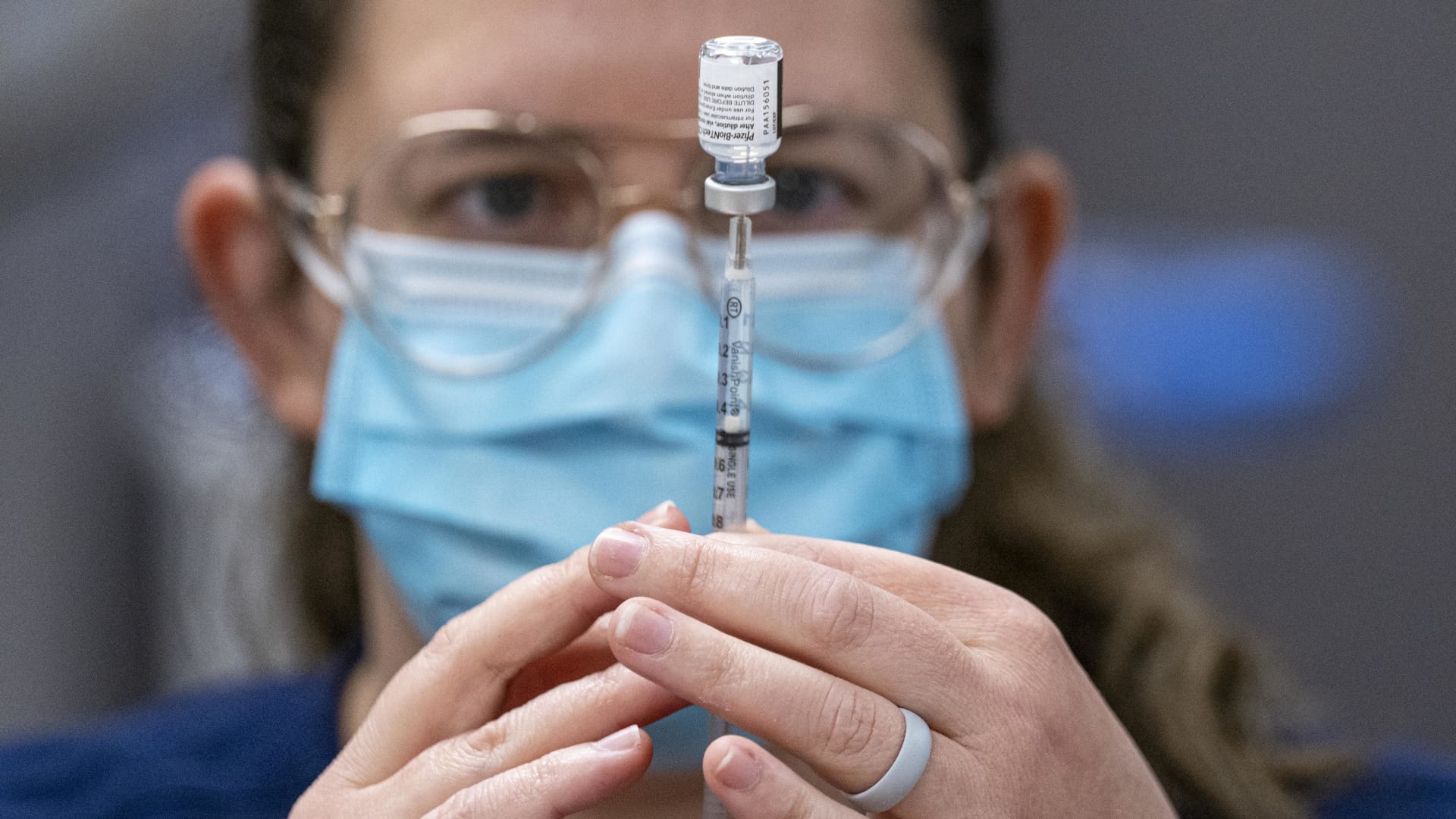Pfizer‘s vaccine that protects infants from respiratory could receive Food and Drug Administration approval by the end of this summer.
Pfizer on Tuesday said the FDA is reviewing the vaccine on an expedited basis. The agency is expected to make a decision on whether to clear the shot in August, just before respiratory virus season.
The single-dose vaccine is administered to expectant mothers in the late second to third trimester of their pregnancy. The antibodies triggered by the shot are passed to the fetus, and protect infants against RSV from birth through the first six months of life, when they are most vulnerable.
The vaccine was 82% effective at preventing severe disease from RSV in newborns during the first 90 days of life, according to data from Pfizer’s clinical trial. The shot was about 70% effective during the first six months of the baby’s life.
No vaccine to protect against RSV exists now. Infants younger than 6 months are also too young to receive most shots recommended by the Centers for Disease Control and Prevention.
RSV is the leading cause of hospitalization for infants in the U.S., according to epidemiologists. Almost all children catch RSV by the time they are 2 years old, and in most cases the virus causes a mild, cold-like illness. But infants face a higher risk of severe disease.
RSV can cause inflammation of the small airways in the lungs and pneumonia. Infants hospitalized with RSV often need oxygen support and IV fluids, and may need to be put on a ventilator to support their breathing.
Symptoms in infants with RSV can include irritability, decreased activity and appetite, and pauses in breathing lasting longer than 10 seconds. The virus doesn’t always cause a fever.
RSV exploded last fall as the public largely stopped wearing masks and practicing social distancing as the Covid-19 pandemic eased. Many children did not catch RSV during the pandemic due to the public health measures, and as a consequence did not have immunity from prior infection as people started socializing again, according to CDC officials.
Hospitals struggled to keep up with large numbers of sick babies and children last fall. The Children’s Hospital Association called the RSV surge “unprecedented” and asked the Biden administration to declare a public health emergency during the peak in November.
Join CNBC’s Healthy Returns on March 29, where we’ll convene a virtual gathering of CEOs, scientists, investors and innovators in the health-care space to reflect on the progress made today to reinvent the future of medicine. Plus, we’ll have an exclusive rundown of the best investment opportunities in biopharma, health tech and managed care. Learn more and register today: http://bit.ly/3DUNbRo
